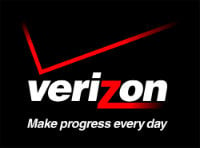Internet provider Verizon recently submitted a response to the U.S. Copyright Office, which is reviewing the effectiveness of the DMCA takedown process.
In line with other ISPs, the group stresses that the DMCA doesn’t require Internet providers to forward notices to their subscribers. This requirement only applies to services which actually host content, they point out.
Despite this crucial difference ISPs receive countless copyright infringement warnings which target subscribers who allegedly pirate movies and music. This is a growing problem, according to Verizon, who describe the notices as invalid.
“The biggest problem faced by Verizon is the deluge of invalid notices that it now receives in its role as a provider of conduit services – typically relating to peer-to-peer file sharing. These are notices that are not provided for or contemplated by the DMCA,” the ISP notes.
“Ten years ago, Verizon received as little as 6,000 invalid P2P notices each month. As a result of automated notice factories such as Rightscorp, that number has increased to millions each month,” Verizon adds.
The massive increase in volume also directly affects Verizon’s ability to process legitimate notices. In fact, two-and-a-half years ago a batch of over two million notices in one day crashed one of Verizon’s mail servers.
“In November 2013, Rightscorp, Inc., one of the principal abusers of the section 512 framework, inundated Verizon with over 2 million invalid notices in a single day, causing the server for inbound DMCA notices to crash.”
“The deluge of these improper notices jams the system and slows Verizon’s ability to respond to the valid notices that it receives,” Verizon explains.
The ISP is only required to respond to takedown notices for its hosting services and CDN, which are only a few dozen per month. So, finding these in a pile of millions of incorrect notices can indeed be quite a challenge.
Congress never intended ISPs who merely pass on traffic to receive these kind of notices, Verizon says. They condemn outfits such as Rightscorp who regularly issue demands for ISPs to terminate the accounts of pirating subscribers.
“That is an abuse of the DMCA notice process,” the ISP writes. “In Verizon’s view, it is important that sanctions be available for this kind of abusive conduct.”
In addition to sanctions for improper takedown notices, Verizon directly attacks Rightscorp’s settlement business model, equating it to a “shakedown.”
All in all, the ISP hopes Congress will help Internet providers to keep the current safe harbor protections for ISPs in place, while making sure that abusive anti-piracy outfits are properly sanctioned.
Verizon’s submission to the U.S. Copyright Office can be read in full here.


 Internet provider Verizon recently submitted a response to the U.S. Copyright Office, which is
Internet provider Verizon recently submitted a response to the U.S. Copyright Office, which is 



